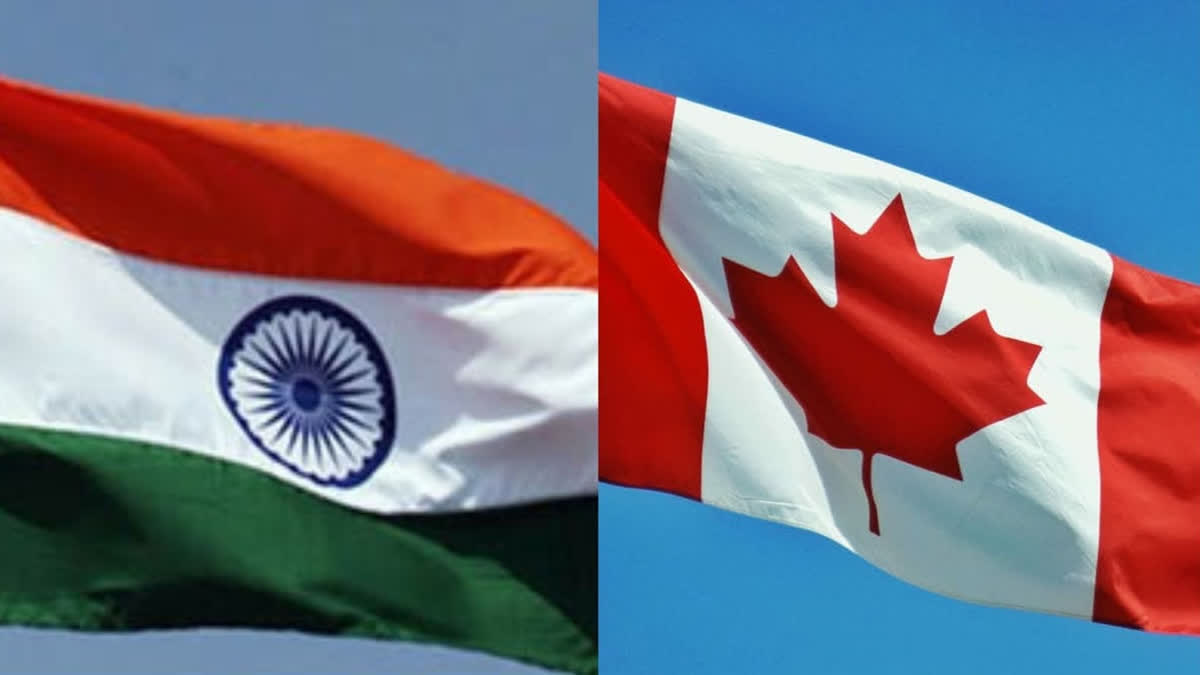New Delhi: With reports suggesting that India is likely to approach the Financial Action Task Force (FATF) with credible evidence of terror financing in Canada, the diplomatic row between New Delhi and Ottawa is now set to take a new turn.
A media report cited a source familiar with the development as saying that “with Canada seeking to divert the focus from the core issue of Khalistani elements having a free run on its soil, India has no other option but to report Prime Minister Justin Trudeau’s inaction against pro-Khalistan elements in his country to FATF”.
“India is, therefore, planning to collect evidence of terror funding and financing emanating from Canada and present it to FATF,” the source was quoted as saying. India and Canada have been involved in a huge diplomatic row for over a month now following Canadian Prime Minister Justin Trudeau’s explosive allegation on the floor of parliament that India had a hand in the killing of one of its citizens, Hardeep Singh Nijjar, a wanted Khalistani terrorist, earlier this year.
New Delhi had dismissed Trudeau’s allegations as “absurd and motivated”. “Such unsubstantiated allegations seek to shift the focus from Khalistani terrorists and extremists, who have been provided shelter in Canada and continue to threaten India’s sovereignty and territorial integrity,” the External Affairs Ministry had said.
Though India has sought evidence from Trudeau to substantiate his charge, none has come. Instead, Trudeau has been trying to divert attention from the core issue of Khalistani separatists being given a free run in Canada by raising the bogey of India violating the Vienna Convention by withdrawing diplomatic immunity to 41 Canadian diplomats. India, on its part, has proved that it has not violated the Vienna Convention.
On the other hand, though India has been providing credible evidence about financing and support extended to Khalistani terrorists in Canadian politics, Ottawa has not taken any action. As such, India is now collecting evidence of terror funding and financing in Canada to present this to the FATF.
So what is the FATF?
The FATF is an intergovernmental organisation founded in 1989 at the initiative of the G7 to develop policies to combat money laundering and to maintain certain interests. In 2001, its mandate was expanded to include terrorism financing.
The objectives of FATF are to set standards and promote effective implementation of legal, regulatory and operational measures for combating money laundering, terrorist financing and other related threats to the integrity of the international financial system. The FATF identifies countries and jurisdictions with weak measures to combat money laundering and terrorist financing in two FATF public documents that are issued three times a year. The two public documents issued by the FATF are called “High-Risk Jurisdictions subject to a Call for Action” (commonly known as black list) and “Jurisdictions under Increased Monitoring” (or grey list).
As of June 2023, the FATF has reviewed over 125 countries and jurisdictions and publicly identified 98 of them. Of these 98, 72 have since made the necessary reforms to address their weaknesses in addressing the issues of money laundering and terror financing and have been removed from the process.
The blacklist identifies countries or jurisdictions with serious strategic deficiencies to counter money laundering, terrorist financing, and financing of proliferation. For all countries identified as high-risk, the FATF calls on all members and urges all jurisdictions to apply enhanced due diligence, and in the most serious cases, countries are called upon to apply counter-measures to protect the international financial system from the ongoing money laundering, terrorist financing, and proliferation financing risks emanating from the country. As of June 2023, North Korea, Iran and Myanmar were on this list.
The grey list identifies countries that are actively working with the FATF to address strategic deficiencies in their regimes to counter money laundering, terrorist financing, and proliferation financing. When the FATF places a jurisdiction under increased monitoring, it means the country has committed to resolving swiftly the identified strategic deficiencies within agreed timeframes and is subject to increased monitoring. As of June 2023, 25 countries were on this list.
Countries mentioned on these lists face difficulties in getting international economic aid. For example, Pakistan was on the grey list for a long time but has since come out of it after initiating reforms in its banking and financial system.
So what does India approaching the FATF over terror financing emanating from Canada imply? After all, Canada itself is a member of the G7, the very group that formed the FATF.
According to Robinder Sachdev, president of the independent think tank ImagIndia and who closely follows India-Canada relations, the functioning of the Paris-based watchdog is very bureaucratic in nature.
“What India is doing is tightening the bureaucratic screws on Canada to deal with terror financing,” Sachdev said. “The FATF has parameters within which it carries out its investigations.”
What India is trying to find out through the FATF is how strict are the KYC norms in the Canadian banking system. What are the banking regulations in Canada to monitor money flowing in from outside? If money is found to be emanating from an illegal source, can the recipient be taken to court? Can the receiving entity be put in jail?
The FATF on its own cannot compel Canada to take action against money laundering and terror financing. What it can do is push Canada to fix a stipulated timeframe within which legal action can be taken an individual or organisation receiving money from illegal sources or through hawala. It can also push Canada to spell out the severity of the prison term depending on the scale of the crime.
“Supposing an individual or organisation in Canada receives a large sum of money, say one million dollars, from abroad,” Sachdev explained. “The receiving entity may well claim that the money has come from a large-hearted donor from, say Cyprus. What India wants to find out is whether the Canadian banks have the systems in place to check the origin of money in any suspicious transaction and report any anomaly to the authorities concerned.”
At the end of the day, however, if Canada at all comes under investigation by the FATF, its image as a developed nation will suffer.
Also read: 'Continuous interference': EAM Jaishankar reveals why India invoked diplomatic parity with Canada
Also read: Be careful what you say about India: Jaishankar’s subtle message to Canada


